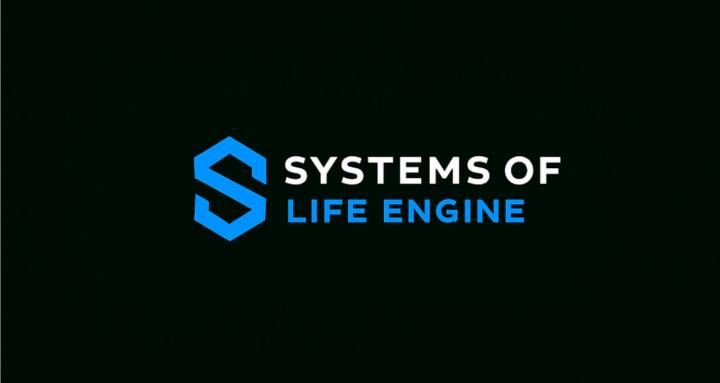
Write something
Gamifying Life - How Do You Want to Play the Game?
Saying that 𝗴𝗮𝗺𝗶𝗳𝗶𝗻𝗴 𝗹𝗶𝗳𝗲 is about using techniques known from computer and board games in "real life" isn't very explanatory because it doesn't convey many important details. In this post let me tackle first distinction: how do you want to play the game. 𝗚𝗮𝗺𝗶𝗳𝗶𝗰𝗮𝘁𝗶𝗼𝗻 𝗔𝗽𝗽𝗿𝗼𝗮𝗰𝗵es There are two approaches how to "gamify life": 𝗦𝗶𝗺𝘂𝗹𝗮𝘁𝗶𝗼𝗻𝗶𝘀𝘁 𝗔𝗽𝗽𝗿𝗼𝗮𝗰𝗵 and 𝗚𝗮𝗺𝗶𝘀𝘁 𝗔𝗽𝗽𝗿𝗼𝗮𝗰𝗵. 𝗦𝗶𝗺𝘂𝗹𝗮𝘁𝗶𝗼𝗻𝗶𝘀𝘁 𝗔𝗽𝗽𝗿𝗼𝗮𝗰𝗵 - it's the mindset of playing a game with your life. You just mentally imagine you are playing a game with your life and "act like a hero of the game". In order to play this game you need to have some vision of yourself (hero) and you can execute (simulate) actions of this imagined hero in "Real Life". This is to some extend similar to visualization exercises (like the famous people council from Napoleon Hill's "Think and Grow" book) or make-believe games that children are playing. 𝗚𝗮𝗺𝗶𝘀𝘁 𝗔𝗽𝗽𝗿𝗼𝗮𝗰𝗵 - you have a accountability tool that you use to gamify your life. This can be a custom-written software, spreadsheet, Power Point, Notion, Habitica or similar and last but not least: classic pen & paper. With gamist approach the system (or "tool", or "game") have some underlying goal (and it's not equivalent to the "real life" goal). So for example you can have a goal to lose weight and you use a game tool where there are "weight points" and the goal is to collect 1000 points in 90 days - by meeting the game goal, you will also meet the "real life" goal (if the game rules are designed well, obviously). I am personally much more interested in Gamist Approach. 𝑇ℎ𝑖𝑠 𝑝𝑜𝑠𝑡 𝑤𝑖𝑙𝑙 𝑏𝑒 𝑎𝑑𝑑𝑒𝑑 𝑎𝑡 𝑠𝑜𝑚𝑒 𝑝𝑜𝑖𝑛𝑡 𝑡𝑜 𝑡ℎ𝑒 𝑐𝑜𝑢𝑟𝑠𝑒. 𝐼𝑓 𝑦𝑜𝑢 ℎ𝑎𝑣𝑒 𝑠𝑜𝑚𝑒 𝑎𝑑𝑑𝑖𝑡𝑖𝑜𝑛𝑎𝑙 𝑡ℎ𝑜𝑢𝑔ℎ𝑡𝑠 𝑜𝑛 𝑡ℎ𝑖𝑠 𝑡𝑜𝑝𝑖𝑐 𝑜𝑟 𝑦𝑜𝑢 𝑑𝑜𝑛'𝑡 𝑎𝑔𝑟𝑒𝑒 𝑤𝑖𝑡ℎ 𝑠𝑜𝑚𝑒𝑡ℎ𝑖𝑛𝑔 - 𝑝𝑙𝑒𝑎𝑠𝑒 𝑤𝑟𝑖𝑡𝑒 𝑎 𝑐𝑜𝑚𝑚𝑒𝑛𝑡 𝑎𝑛𝑑 𝑙𝑒𝑡'𝑠 ℎ𝑎𝑣𝑒 𝑎 𝑑𝑖𝑠𝑐𝑢𝑠𝑠𝑖𝑜𝑛 𝑎𝑏𝑜𝑢𝑡 𝑖𝑡.
System/Game Imitation in Life Gamification
One interesting idea is to replicate as much as possible a system from a game and use it for life gamification. Most people who gamify their life are either gamers or were playing games (computer, board, sport etc.) in the past. They understand the power of game mechanics and techniques so they don't have to be convinced. I don't have to tell them that they can do things they don't particularly like just because of some game technique present. All these people have their favourite game - whether it's some RPG, RTS, FPS, board game or a sports game. These games have some rules, game mechanics. What if they could be just replicated into your gamified system? How can you replicate Scrabble rules into a life domain? How can you replicate football rules into a life domain? How can you replicate Sims rules into a life domain? **What are the benefits of game/system replication?** The basic premise of life gamification is that having rules is better than no rules. Typically people don't have any rules to follow which result in chaos. But defining rules is difficult so just copying them from some known game simplifies the process of design. It can even make it more exciting. It will be interesting to review different possibilities by combining rules of some entertainment game with gamification of life.
3
0
Real Life Rewards - Granularity Property
One type of rewards that are frequently present in games we focus on in this community are things/actions we allow ourselves to do as a result of doing desired actions (e.g. working on a project or going to the gym). It can be for example eating something sweet or watching some movie. Let me review some important things about this subject. Today's 𝗚𝗿𝗮𝗻𝘂𝗹𝗮𝗿𝗶𝘁𝘆 property. Best if rewards can be easily granularized - chunked into smaller portions. If reward has no such property then it's more difficult to use it in a gamified scenario. Very good granular reward is time spent on the internet - you can just set how many minutes you can use it and stop when the timer says the time passed. Generally time-based rewards are great - there are so many options to split time. Now consider watching some movie series on Netflix. It's a slightly worse reward as it's not that rewarding (motivating) to watch 20% of the movie. Or drink half of the coffee. There are even rewards that aren't granular at all - for example buying yourself some expensive gift. There are a few ways to make nongranular rewards more granular. You can use in-game 𝗿𝗲𝘀𝗼𝘂𝗿𝗰𝗲 to buy a real-life reward. For example you need to have 1000 coins to watch an episode in Netflix so you need to "earn" in-game money to spend it on this reward. Another way is to use 𝗰𝗼𝗹𝗹𝗲𝗰𝘁𝗶𝗼𝗻 𝘀𝗲𝘁 game technique. For example, to watch an episode on Netflix you need to gather some game cards A, B, C, D and E and you can win them by doing desired actions. You have to have them all to be able to watch an episode. 𝑇ℎ𝑖𝑠 𝑝𝑜𝑠𝑡 𝑤𝑖𝑙𝑙 𝑏𝑒 𝑎𝑑𝑑𝑒𝑑 𝑎𝑡 𝑠𝑜𝑚𝑒 𝑝𝑜𝑖𝑛𝑡 𝑡𝑜 𝑡ℎ𝑒 𝑐𝑜𝑢𝑟𝑠𝑒. 𝐼𝑓 𝑦𝑜𝑢 ℎ𝑎𝑣𝑒 𝑠𝑜𝑚𝑒 𝑎𝑑𝑑𝑖𝑡𝑖𝑜𝑛𝑎𝑙 𝑡ℎ𝑜𝑢𝑔ℎ𝑡𝑠 𝑜𝑛 𝑡ℎ𝑖𝑠 𝑡𝑜𝑝𝑖𝑐 𝑜𝑟 𝑦𝑜𝑢 𝑑𝑜𝑛'𝑡 𝑎𝑔𝑟𝑒𝑒 𝑤𝑖𝑡ℎ 𝑠𝑜𝑚𝑒𝑡ℎ𝑖𝑛𝑔 - 𝑝𝑙𝑒𝑎𝑠𝑒 𝑤𝑟𝑖𝑡𝑒 𝑎 𝑐𝑜𝑚𝑚𝑒𝑛𝑡 𝑎𝑛𝑑 𝑙𝑒𝑡'𝑠 ℎ𝑎𝑣𝑒 𝑎 𝑑𝑖𝑠𝑐𝑢𝑠𝑠𝑖𝑜𝑛 𝑎𝑏𝑜𝑢𝑡 𝑖𝑡.
Task Games - Compound Task Property
In Task Games (games where the primary entity is a task) we can have a special type of tasks: "compound tasks". These tasks are wrappers (containers) around other tasks - when these tasks are done then the compound task is done. Compound tasks provide many ways of gamification. I have never fully explored this topic nor seen it used by other people. Let's review some of the possibilities. - Number of task children the compound task can have. The game can limit how many children the compound task can have. - Depth of compound task. Compound tasks can have other compound tasks as children etc. Depth defines how many layers these tasks can have. - Order in which children of a given task has to (or needs to) be done.
Task Games - Weight Property
In Task Games (games where the primary entity is a task) one can attach a special value to it - 𝘄𝗲𝗶𝗴𝗵𝘁. This weight can mean either difficulty or importance of a given task. One could even have 2 weights - both for difficulty and importance. A very good strategy is to have three weights: light, normal and heavy. Having more will make it difficult to properly assign weights to each task. The rule of thumb is that a lightweight task should be three times more easy/less important than a normal task and a normal task should be three times more easy/less important than a heavy task. This also makes evaluations more easy (immediate). And this is important because the process of creating a task is a burden of its own. I consider weights as "necessary evil". Ideally all tasks should be of equal weight - same difficulty, same importance. However in reality it's very difficult to achieve - thus this additional weight construct. Weights can be coined with how much resource will be granted for doing a given task (or drained in case the task is constantly postponed). Weight can be coined with rewards - if a task with higher weight is done then better reward is given (or there is higher chance of drawing better reward).
1-13 of 13
powered by

skool.com/gamifying-life-1637
The community collects working self-productivity systems & general patterns that need to be present in all life systems.
Suggested communities
Powered by
